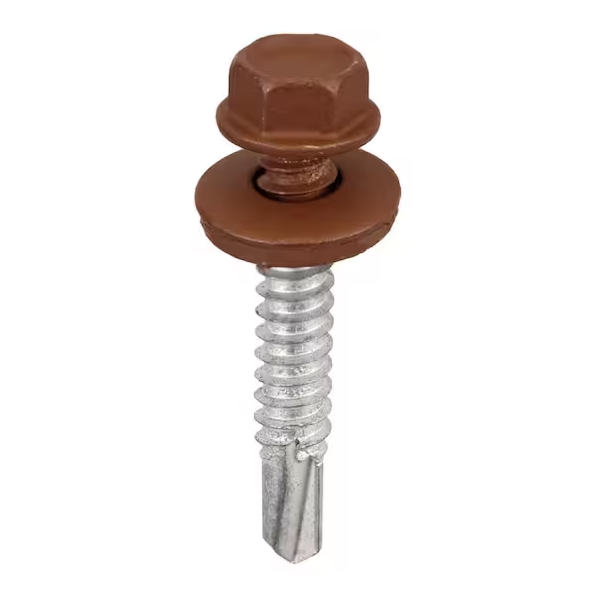Self-Tapping Screws and Their Applications in Various Industries
Understanding Screw Self-Tapping The Essential Fastener
In the world of construction and manufacturing, fasteners are the unsung heroes that hold structures together and ensure functionality. Among the multitude of fastener types, self-tapping screws stand out as a preferred choice for many applications, thanks to their unique design and efficiency. This article explores self-tapping screws, their advantages, applications, and best practices for use.
What is a Self-Tapping Screw?
A self-tapping screw is a fastener that can create its own hole as it is driven into materials, eliminating the need for a pre-drilled pilot hole. This type of screw has a sharp, pointed tip and features a thread that extends along its shaft. The design allows the screw to cut into the material, making it particularly useful in a variety of substrates, including metal, wood, and plastic.
Types of Self-Tapping Screws
There are several types of self-tapping screws, each optimized for different materials and applications
1. Sheet Metal Screws Designed to join metal sheets together, these screws often have fine threads and are ideal for thin materials.
2. Wood Screws These screws typically have coarse threads to provide strong holding power in wooden applications.
3. Lag Screws Heavier and thicker than standard self-tapping screws, lag screws are used for securing heavy objects to wood or other dense materials.
4. Plastic Screws Specifically designed for fastening plastic components, these screws prevent cracking and damage to the material.
Advantages of Self-Tapping Screws
Self-tapping screws offer numerous advantages that make them a popular choice across various industries
1. Time-Efficiency The ability to drill and tap in one operation significantly reduces assembly time and labor costs. This efficiency is particularly beneficial in mass production settings.
2. Versatility With various types suited for different materials, self-tapping screws can be used in numerous applications, from home improvement projects to industrial machinery assembly.
3. Cost-Effective By eliminating the need for pre-drilling and additional fasteners, self-tapping screws can reduce material and labor costs.
screw self tapping

4. Strong Holding Power Properly installed self-tapping screws provide robust anchoring, ensuring the integrity of the assembly.
5. Ease of Use These screws are relatively easy to install with common tools, which makes them accessible even to DIY enthusiasts.
Applications of Self-Tapping Screws
Self-tapping screws find applications in numerous sectors, including
- Construction Used extensively for framing and fastening drywall, these screws ensure sturdy and reliable structures. - Automotive They are vital in assembling vehicles, particularly in attaching components like panels, brackets, and engine parts. - Electronics Self-tapping screws are often used to secure casings and components in electronic devices, owing to their precision and stability.
- Home Improvement From furniture assembly to hanging fixtures, these screws are staples in DIY projects and renovations.
Best Practices for Using Self-Tapping Screws
To achieve the best results when using self-tapping screws, consider the following best practices
1. Choose the Right Screw Select a screw appropriate for your material and application. Consider factors such as length, thread type, and screw diameter.
2. Use the Correct Tool A power drill or a screwdriver with the right bit can prevent stripping and ensure a tight fit.
3. Avoid Over-Torquing Excessive force can lead to damage to the screw or material. Always apply even pressure and stop when resistance is felt.
4. Pilot Holes for Hard Materials In some cases, especially with harder materials, pre-drilling a pilot hole can aid in easier insertion and more secure fastening.
5. Regularly Check Tightness Over time, self-tapping screws can loosen, especially in high-vibration applications. Regular maintenance checks can ensure long-term reliability.
Conclusion
Self-tapping screws are an essential fastener that combines efficiency, versatility, and reliability. Their unique ability to create their own holes allows for quicker installation processes across various applications. Whether you are an industry professional or a DIY enthusiast, understanding and utilizing self-tapping screws can greatly enhance the quality and durability of your projects. With the right selection and best practices, these screws can simplify assembly while ensuring optimal strength and performance.
-
Top Choices for Plasterboard FixingNewsDec.26,2024
-
The Versatility of Specialty WashersNewsDec.26,2024
-
Secure Your ProjectsNewsDec.26,2024
-
Essential Screws for Chipboard Flooring ProjectsNewsDec.26,2024
-
Choosing the Right Drywall ScrewsNewsDec.26,2024
-
Black Phosphate Screws for Superior PerformanceNewsDec.26,2024
-
The Versatile Choice of Nylon Flat Washers for Your NeedsNewsDec.18,2024










